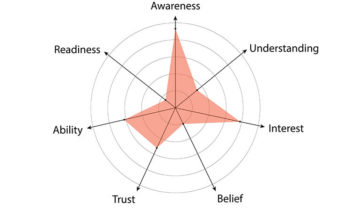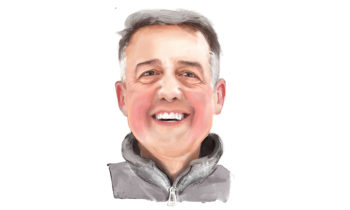A Tasting Flight
I see this all the time with practice leads and consulting partners. I’ll ask them, “What are the services you provide?” Their answer will be, “Depends on the problem…” Expert service providers do this for two reasons. First, they are smart and can legitimately offer help in a variety of different situations across industries and geographies. Second, they know new business is hard to find and if they get a nibble on the hook, their first instinct is to start reeling, regardless of whether the fish is in season or out.
Dave reports he learned the need for focus the hard way, defining his consulting practice broadly but over time narrowing it and, in so doing, expanding his right to own that niche. (For more on the need to shrink your pond, click here.)
With his focus tight, he began to build his practice by offering up sips of his expertise in the form of audio, written and video posts. These bits of useful content feed his business because they offer potential clients four things:
Value
Relationships ignite more quickly when one begins by making a gift. Offering value invites those you want to serve to move closer to you, as opposed to starting off by asking them to do something for you. “Add value with every touch,” says Dave. Often this can mean pointing would-be clients to a colleague or other resource. This is somewhat counter-intuitive. Most people would be inclined to try to pull the would-be client closer, but actually being their ally as they seek assistance positions you as a trusted advisor and not a salesperson.
A “Taste”
Expert services are sold only after a would-be client knows and trusts you. As Dave points out, it used to be that a big-name firm on your business card and a degree from a name-brand graduate university was enough to not only gain entre but to establish your bona fides. Now, with expertise more broadly distributed, clients need to try before they buy. Recording audio casts, writing blogs and filming video clips give expert service providers a chance to demonstrate their expertise — not just talk about it.
Personality
Hiring expert help is a very personal decision. You have to feel like you can work with the person you are hiring. Pushing out snippets of expertise allows you to showcase who you are, and this helps would-be clients cross the important bridge to a place where they can start to say, “I could imagine talking with and working with this person.”
Efficient Access
The world is increasingly flat, meaning that expert service providers are specialists with technology-enabled global practices but thin coverage in any one geography. This is exciting because a pension benefits attorney in Sydney can work with clients in Toronto as easily as they work with clients in Melbourne. The downside is that it is hard to wade through the proliferation of advisors to find just the right expert. By generating bits of useful content that showcase your expertise, you begin to participate in a web of socially-defined ties — links to other online work, for example — that enable others to more efficiently find you.




